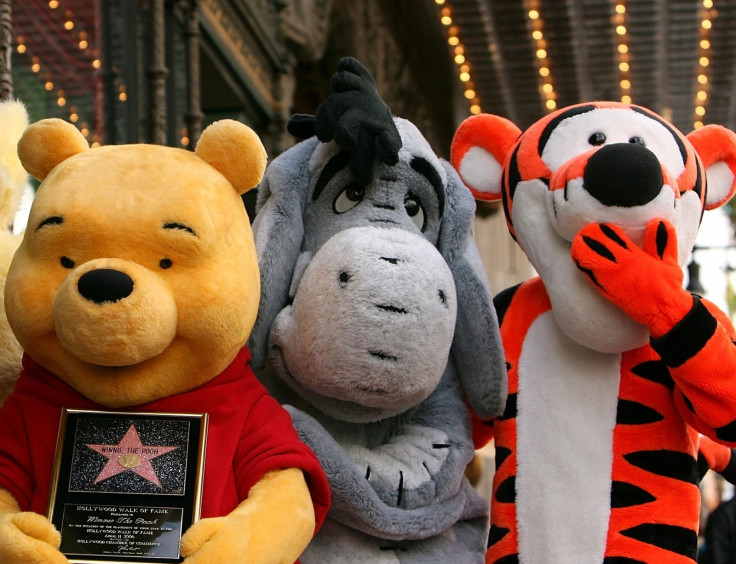How Winnie-the-Pooh explains British politics
When it comes to Brexit, it's easy to see who is a Tigger and who is an Eeyore.
Canada, the only G7 country to come through the credit crunch without a downturn, keeps getting wealthier, healthier and happier. While this is obviously excellent news, it's something of a headache for the Canadian Conservatives, who were the chief authors of that prosperity.
When the Tories took office in 2006, Canada had trade deals with five countries; when they left in 2015 that number had grown to 43, and Canada was booming. Justin Trudeau, the current PM, was left a golden legacy: strong growth, falling taxes, a balanced budget. His Liberal government promptly started running a deficit but, for most Canadians, life is good.
It's a paradox: the Conservatives' single biggest problem, electorally, is the 4.5% growth rate created largely by their own policies. Like free-market politicians the world over, they must contend with an unfair economic cycle. Voters lean Right when the economy is in a mess, meaning that conservatives usually begin with a disadvantage. After they have taken the tough decisions needed to bring the budget back into balance, voters often decide they can afford the Left again, who accordingly begin with an economy that takes years to crash. Rinse, repeat.
I had the pleasure of addressing Canada's Tory MPs on Friday, gathered for an away day in Winnipeg. I took, as my theme, Winnie-the-Pooh, who was indirectly named after that handsome prairies city. (A Canadian officer whose regiment was garrisoned there had brought a black bear named Winnipeg to London Zoo during the First World War, and Christopher Robin Milne, after seeing her, changed his bear's name from Edward to Winnie.)
A.A. Milne, I told the audience, created in Tigger and Eeyore two useful archetypes. Tigger is a whir of energy and enthusiasm. He keeps declaring that Tiggers can do anything. Bouncing, he tells anyone who'll listen, is what Tiggers do best. Eeyore, by contrast, is glum and introverted. He is cleverer than the other animals in Hundred Acre Wood, but he is almost never happy. "We can't all and some of us don't. That's all there is to it."
In political terms, Boris Johnson is a Tigger: a natural optimist with an unfeigned largeness of spirit. Gordon Brown is an Eeyore: the rare occasions when he twists his mouth into what's meant to be a smile are, frankly, terrifying. Other things being equal, I argued, voters will pick a Tigger over an Eeyore.
Even Eeyorish voters prefer Tiggerish politicians. The pollster Stephan Shakespeare divides the electorate into what he calls drawbridge-up and drawbridge-down types. The drawbridge-uppers – the Eeyores, if you will – are cynical and pessimistic, readier to see threats than opportunities.
They distrust data showing that crime rates and poverty are falling, and tend to be strongly anti-immigration. The drawbridge-downers, the Tiggers, are much more willing to look on the bright side, and see change as, on the whole, positive. Eeyores regard Tiggers as hopelessly naïve; Tiggers see Eeyores as bigoted. Both are sometimes right.

But here's the thing: Eeyores don't like politicians who simply reflect their anxieties back at them. To win, the candidate must also offer solutions, or at least a sense that there is a way to make things better.
Think of the Brexit referendum. While the electorate had its share of Eeyores, Vote Leave could not have won had it run the nativist and inward-looking campaign that Remainers now retrospectively imagine. It had to offer a bright vision – a vision of a global Britain, making its own laws, spending its own money, setting its own priorities, becoming more democratic.
The referendum result has turned prominent Remainers into Eeyores, determined to predict disaster, responding to every bit of good economic news by saying, "Just you wait!" It is not a good look. Many pundits are incredulous that the polls suggest a further swing to Leave since the referendum. How, they demand, can voters be so impervious to all the warnings of imminent disaster? The answer is obvious: voters are put off by Eeyorish politicians, especially when those politicians give the impression of hoping for bad news so as to be able to say "I told you so".
Avoid at all costs, I told my Winnipeg audience, the temptation to belittle good economic news. Don't ever let yourself say: "Yeah, well, 4.5% growth sounds impressive until you realise it's all built on debt." People may see the truth of it; but they won't thank you for pointing it out. Better by far to say: "Great news about the economic growth: it's a vindication of all the things we did in office. We hope that the Liberals can see it too, and that they don't blow it away."
Which brings me back to British politics. Curiously, all the main parties are currently adopting a more-or-less Eeyorish tone. I say "curiously" because employment, growth, stocks, output, exports and retail activity are all rising.
Jeremy Corbyn conjures a vision of Britain so far removed from lived experience as to be delusional: a Britain in which City fat-cats clink champagne glasses while ragged urchins press their noses against the window.
But Theresa May isn't exactly hymning the triumphs of the government which she has either led or served in successfully for seven years. She keeps being rude about business executives, and stressing social inequality, which gives credence to Corbyn's narrative.
There is little to be Eeyorish about. The success of the economy has confounded the predictions made during the referendum campaign. School standards are improving. Crime rates are tumbling. Power is being decentralised. Britain leads the world in law, education, fintech and the audio-visual sector.
All we need is politicians who will say so: friendly Tiggers, Grand Tiggers, Large and Helpful Tiggers. Tiggers, in short, who radiate hope.
© Copyright IBTimes 2025. All rights reserved.






















